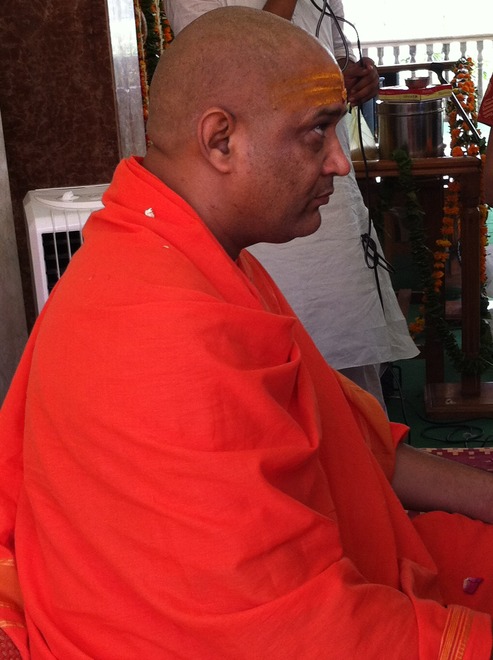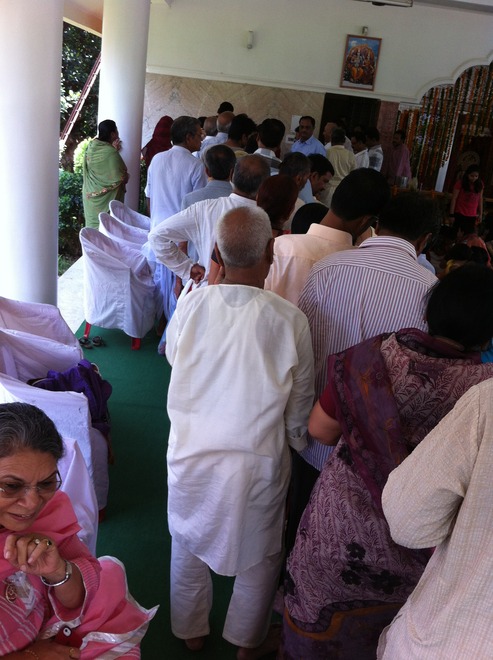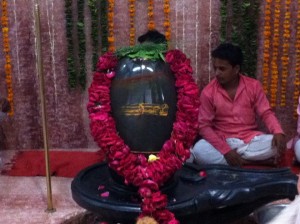
Poetry Editor April Stolarz is a senior at ASU pursuing concurrent degrees in Print/Online Journalism and Creative Writing with a focus on Poetry. Along with her
Superstition Review internship April also writes for ASU’s Media Relations Office and freelances for a variety of publications. She has studied poetry under Norman Dubie and Terry Hummer and is currently studying under Sally Ball. She maintains a blog about local music, Dose of Rock, and hopes to work for a music publication someday. This is April’s first experience with
Superstition Review.
1. What is your position with Superstition Review and what are your responsibilities?
I am one of the poetry editors for Superstition Review’s Spring 2011 issue. I am responsible for reviewing poetry submissions and voting for certain poems to be published. Once those poems are given the go ahead I contact the authors and send them final proofs to be featured in the magazine.
2. Why did you decide to get involved with Superstition Review?
I’ve always loved words and any form of expression, especially written expression. In high school I was the editor of my literary magazine and absolutely loved being a part of that process. I wanted to expand my knowledge and be a part of the next step in order to gain more professional experience.
3. How do you like to spend your free time?
My life is a balancing act of 18 credits and multiple jobs. Most of my free time is swallowed up by writing; I freelance for various publications. My absolute favorite thing to do is see live music. I try to spend as much time as possible at concerts and music festivals. Other than that I love reading, being outside and doing anything outdoorsy.
4. What other position(s) for Superstition Review would you like to try out?
I’d like to be the non fiction editor, interview editor and web design editor. I think they’d all be a great learning experience and equally as interesting and fun.
5. Describe one of your favorite literary works.
A simple story about a girl with extremely large thumbs that manages to encompass wide-ranging and heart-aching themes such as religion, sexuality, marriage, freedom, traveling, magic and everything in between. This book, Even Cowgirls Get the Blues by Tom Robbins, is a journey through the human experience with rainbow colored sprinkles, whipped cream, hot fudge and a cherry on top. Tom Robbins is the master of metaphor, and he’s not afraid to show it.
6. What are you currently reading?
Every chance I get (which isn’t as often as I’d like) I reach for one of the books on my shelf. I’m currently thumbing through and trying to digest: Skinny Legs And All by Tom Robbins, Letters to a Young Poet by Rainer Maria Rilke, Book of Longing by Leonard Cohen and Transformations of Myth Through Time by Joseph Campbell.
7. Creatively, what are you currently working on?
As a poetry senior in the capstone writing class I’m working on a new poem every week and a new revision as much as possible. For one of my jobs I’m writing a feature story about a professor for ASU’s website. I blog about local music a few times a month and am working on updating my personal website.
8. What inspires you?
Inspiration is everywhere and nowhere at the same time. Discovering new things, reading a certain word, being outside, spontaneity, vibrancy, color, conversation, cities, people who aren’t afraid to say what they think and do what they want, trees, the sky, free spirits, people who take the different path, who aren’t afraid to travel and explore.
9. What are you most proud of?
This is a weird question for me. While I’ve always prided myself on doing very well in school while simultaneously being involved in other things, what’s given me the most internal pride and satisfaction has been helping my friends realize their dreams.
10. Where do you see yourself in 10 years?
I don’t think about the future; it comes soon enough. But I hope I’m living in a beautiful place, maybe an island somewhere, maybe another continent, surrounded by a strong community of friends, music and love. By then I hope I’ll be working in some form of music business whether it be for a music magazine such as Spin or for some other music company. I hope my life is filled with laughter.
 Today we are pleased to feature author Abby Horowitz as our Authors Talk series contributor. In her podcast, Abby discusses the development of her piece, “I Want Her to Burn Me Forever,” published in Issue 18. She explains how it began as a very different (and much longer) story before she decided to shift the focus from the bride to her partner. With this shift in focus, she began to explore the question, “What does it mean to enter into this long-term relationship with someone who is complicated?”
Today we are pleased to feature author Abby Horowitz as our Authors Talk series contributor. In her podcast, Abby discusses the development of her piece, “I Want Her to Burn Me Forever,” published in Issue 18. She explains how it began as a very different (and much longer) story before she decided to shift the focus from the bride to her partner. With this shift in focus, she began to explore the question, “What does it mean to enter into this long-term relationship with someone who is complicated?”



